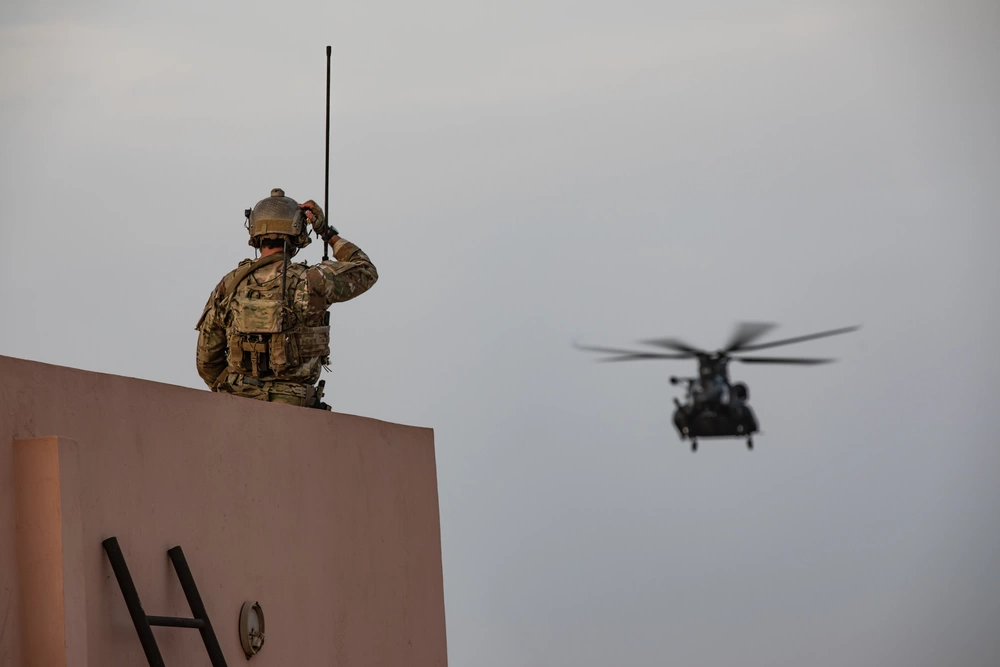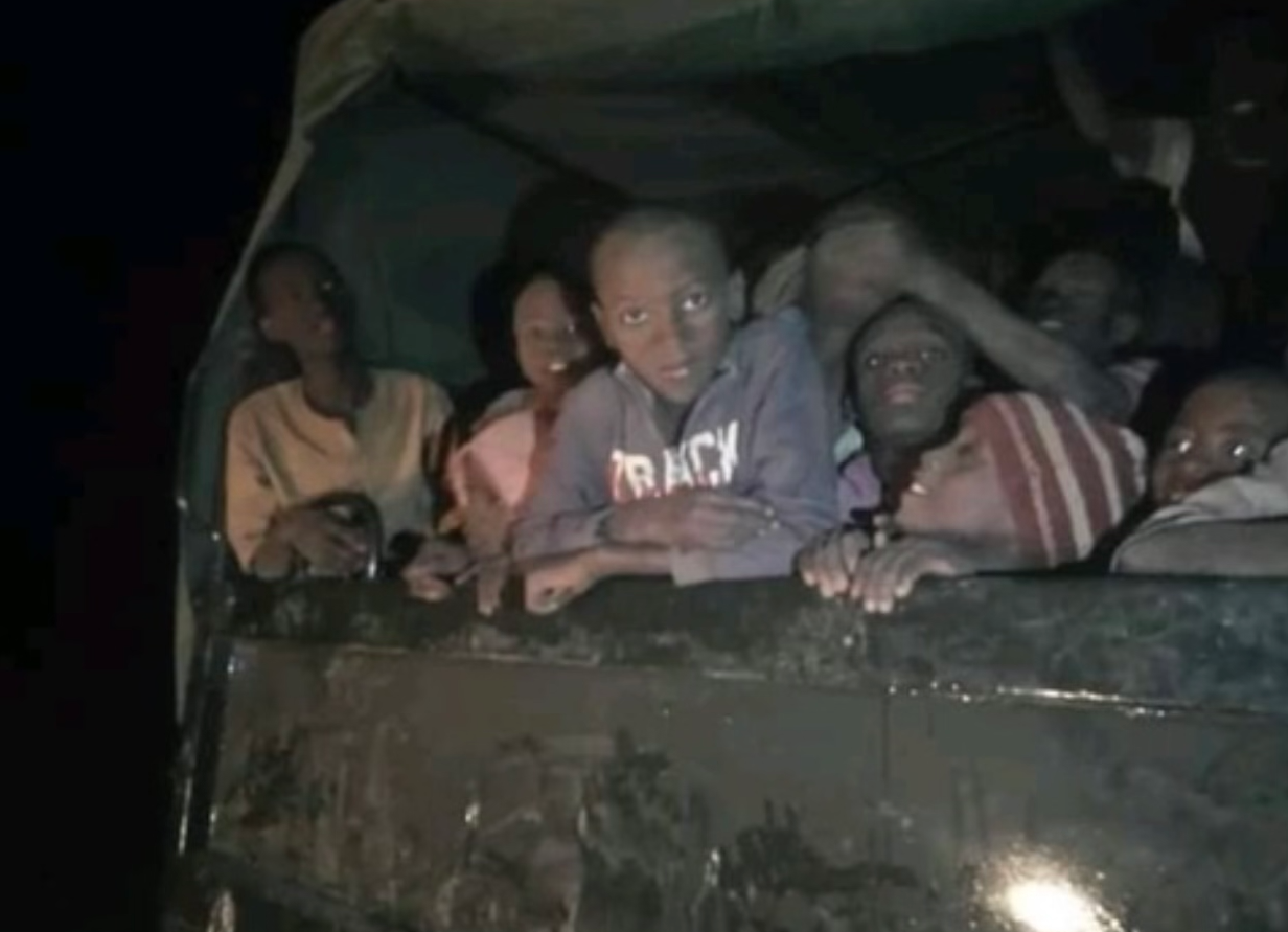
Shadows of Kankara, Pt. I
BY BODHI S.
Nigeria is a country often plagued by its own diversity. It is the most populous nation in Africa, and within its borders exist some 500 languages spoken by 250 extremely proud ethnic groups. Since independence from Britain in 1960, Nigeria has undergone five coups, one violent civil war, a fractured society that bred extremist groups such as Boko Haram, and a lust for street justice when words are ineffective. Despite being the largest economy in Africa and ranked among the top 50 in the world by GDP, Nigeria’s large population stands firmly in two classes, rich and poor. Half of the country makes less than 800 USD per month, and the other half lives the good life. The line between the haves and the have-nots is distinct with only a few hundred extra dollars propelling some from poverty to relative luxury. A large portion of those well below the poverty line make ends meet through nefarious enterprises such as online scams, general breaking and entering, and kidnaps for ransom – the latter of which has metastasized in the ten years between 2013 and 2023. Peaking in 2021, 5,287 people were kidnapped with many of them deemed as mass abductions of more than 20 people being taken hostage at one time. I was in Nigeria between October 2020 and May 2021 and witnessed several abductions as they unfolded.
For twelve violent days in October of 2020 a social movement known as “End SARS” filled the streets of Nigeria’s largest cities to protest the extrajudicial killings and police brutality of the Nigerian Police’s Special Anti-Robbery Squad (SARS). The protests quickly turned violent while I was in Niamey, Niger waiting for a flight into Abuja, Nigeria’s capital city of four million residents. Due to the increasing violence, our flight kept getting delayed. Looking to expedite our entrance into Nigeria, I scrolled through what was then Twitter for open-source intelligence on the current state of the protest. I learned two things very quickly: one, Nigerians love street justice; and two, everything gets posted on the internet – especially street justice.
To sort through the abundance of posts coming in I set up a feed to notify me when posts related to #EndSARS were made. I included several related hashtags and sorted them by major cities. The Twitter algorithm was slow to remove scenes of gruesome violence, and while I looked for any break in the chaos to justify our travel, I ended up learning how a skull reacts to a machete and what a man being hit with bricks sounds like as he begs for his life in front of a crowd with no intent on dispensing mercy. This is Africa, they say. The protests officially ended on October 20th, the same day the Nigerian Army opened fire on protesters at the Lekki Toll Gate in Lagos, killing at least a dozen people – the Army still denies the allegations.
Early in the morning in late October, we weighed and loaded our gear, then boarded a small plane bound for Nnamdi Azikiwe International Airport in Abuja. I was in Northwest Africa (NWA) as part of a six-man Special Operations Forces Liaison Element (SOFLE) which would augment the U.S. Embassy in a variety of ways.
The outgoing two-man team picked us up on the tarmac in a secluded portion of the airport. The smell of Nigeria was altogether familiar yet otherworldly. Polish writer Ryszard Kapuscinski describes the smells of West Africa that westerners experience upon debarking from a plane.
The smell makes us at once aware that we are at the point on earth where an exuberant and indefatigable nature labors, incessantly reproducing itself, spreading and blooming, even as it sickens, disintegrates, festers, and decays. It is the smell of a sweating body and drying fish, of spoiling meat and roasting cassava, of fresh flowers and putrid algae— in short, everything that is at once pleasant and irritating, that attracts and repels, seduces and disgusts. This odor will reach us from nearby palm groves, will escape from the hot soil, will waft above stagnant city sewers. It will not leave us; It is integral to the tropics.
We were briefed on the security situation before we cleared customs, and I was given my first chance to practice the Hausa I had been learning before leaving the States. Hausa is the main language spoken in Abuja outside of English, with Igbo and Yoruba spoken in other areas of the country. Driving from the airport towards downtown Abuja at high speeds I saw the silhouette of the massive granite formation known as Aso Rock in the distance. While the protests had ended, a few remaining machete wielding gangs walked down the sides of the highway.
Just days after arriving, the tone for the remainder of our trip was set in stone when Phillip Walton, an American missionary, was kidnapped by seven armed gunmen in front of his home in Massalata, Niger and taken across the border into the Northern Nigerian bush. His kidnapping was picked up by the RSS feed set up in Niamey, which had been adjusted to alert us of kidnappings, violent extremist organization (VEO) activity, and other likely events we would witness during our time there. From October 26th to the 31st responsibility of the SOFLE was coordination between the State Department, Nigerian Armed Forces and the DoD. My piece of the puzzle during the operation was to help manage and run Intelligence, Surveillance and Reconnaissance (ISR) assets and work alongside other entities within the U.S. Embassy involved in the rescue. As we were still new, the outgoing team managed a lot of the bureaucratic coordination we were still familiarizing ourselves with.
On the night of the 31st, Naval Special Warfare Development Group (DEVGRU) conducted a high altitude, high opening (HAHO) jump into northern Nigeria and descended on the captors killing six of them and successfully rescuing the 27-year-old missionary. Walton was originally kidnapped for ransom and the gunmen intended to sell him to Islamic State aligned groups. Kidnap for ransom operations are nothing new in NWA, and at the time Jeffery Woodke, another American missionary, was being held hostage in Mali by a jihadist group. He was released in March of 2023.
The full name of Boko Haram, translated from Arabic, is The Group of the Sunni People for the Calling and Jihad. Formed in the 1990s, Boko Haram has a goal of overthrowing the Nigerian government and establishing an Islamic state in Nigeria. In many areas of northern Nigeria, they have managed to set up Islamic fiefdoms with Sharia as the legal system and make money by collecting taxes from locals. Boko is the colonial English word for book, and haram means forbidden, together the insinuation is “Western education is forbidden.” They are responsible for many high-profile kidnappings and made front page news all over the world in April 2014, when they kidnapped 276 girls from a school in the mostly Christian area of Chibok, a small town in Borno State Nigeria. One of the British Special Boat Service operators I worked with in Nigeria joked that just visiting Borno State was an extreme sport. While many of the Chibok girls were returned, 90 of them were still missing as of June 2023. Just over a month after the successful rescue of Phillip Walton, gunmen alleging to be a part of Boko Haram would conduct a mass kidnapping similar to Chibok.
What was supposed to be a quiet Saturday dinner at the residence of the U.S. Ambassador to Nigeria, Mary Beth Leonard, quickly turned into one of the largest rescues ever conducted by the Nigerian Army. When we arrived, we all marveled at the palatial estate the State Department sets their ambassadors’ residences in. Despite over a dozen combat rotations between the group with plenty of action, “dinner with the Ambo” was likely the highlight of some of our careers, even if we wouldn’t admit it. I know it was for me. We had our pick of cocktails, wine or beer while we ate some of the finest French Brie anyone could find in Abuja. As we sat down to dinner, I was starry-eyed looking at the gold rimmed plates emblazoned with the Seal of the United States Department of State. Even better, the smaller plates brought out for dessert held the best key lime pie I’ve ever had.
With coffee served, I stole myself to the foyer to look at the pieces from the Art in Embassies Program. The Ambassador had a love of French literature and earlier in the evening we debated which Gustav Flaubert novel was the best. Her collection also included Nigerian literature, and I flipped through a copy of Chinua Achebe’s novel Things Fall Apart – a seminal novel depicting pre-colonial life in Igboland. My local phone buzzed, alerting me to a situation developing in the north. The Nigerian Twitterverse was exploding with #kidnapping #kfr and #bringbackourboys. Boko Haram had allegedly launched an attack late on December 11th, the previous day, at the Government Science Secondary School Kankara, in Katsina State located in the north close to the Niger border.
The Ambassador was notified and immediately got on the phone with combatant commanders from U.S. Africa Command, U.S. Special Operations Command Africa, and our own Special Operations Task Force and Combined Joint Special Operations Task Force. By the time our driver was pulling up to take us back to our house, every ISR asset on the continent was now at our disposal, including those still searching for Jeffery Woodke. For the next week we would be embroiled in the search for the Kankara school boys.









